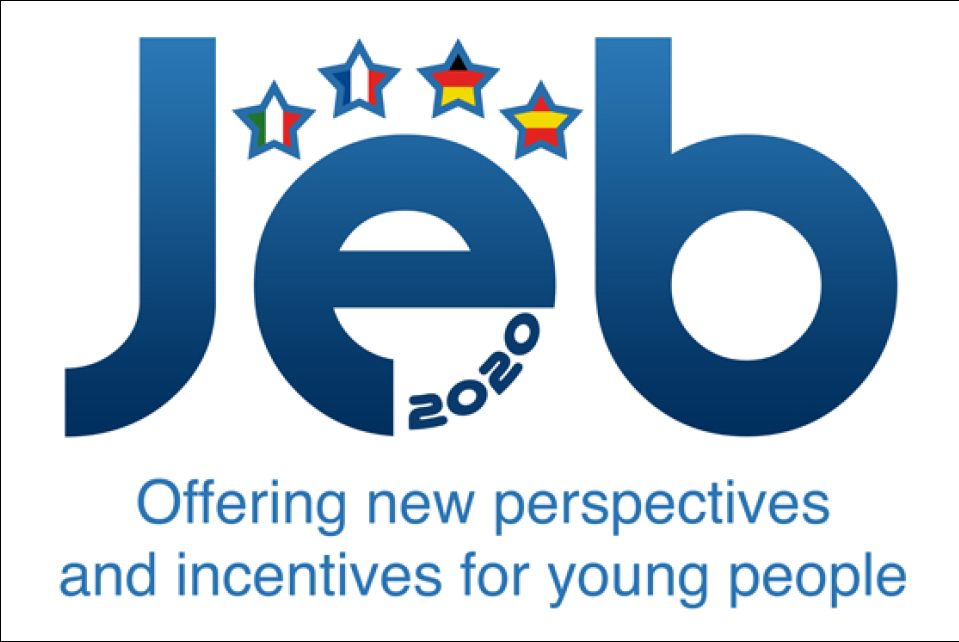
Introduction:
This project aims at boosting young people's opportunities in society by contributing to enhance those skills which will be necessary for them to succeed in 2020 Europe and which will facilitate their access to quality employment no matter what the gender or social background is. It is widely acknowledged that there is a relation between youth work and social inclusion, so we intend to improve students' preparation for the future and make them more competent for the work market. Furthermore, given the present scenario within EU countries with respect to young people's exclusion and lack of opportunities, we consider vital to combat the situation by enhancing their chances to work and integrate in different places around Europe. Thus, the main areas addressed will be promoting entrepreneurship, developing technical and digital skills as well as foreign languages competence. Furthermore, a special attention will also be placed on broadening students' horizons and improving their intercultural and social competence as a way to facilitate their work in international teams. We are convinced that offering new perspectives and supporting their formation will make a positive and active contribution to young people's employability and well-being.
Aims:
Along the same lines as Europe 2020 targets, this project is designed to pay attention to young people's necessities in the field of getting to know the needs of the EU and international labour market (Obj1), promoting an increase of professional opportunities (Obj 2), improving their foreign language competence (Obj3) as well as their digital competence (Obj 4). Developing intercultural competence (Obj 5), that is helping young people to be able to communicate effectively and appropriately with people of other cultures, is also a key step when trying to prepare people for life and work within EU society. So, the project activities will also intend to meet this need, contributing to establishing meaningful interaction and communication in a context of diversity, both through the virtual Twinspace provided by Etwinning and during project meetings. Finally, fostering Autonomous Learning and Entrepreneurship (Obj 6) will be another of the guiding threads of all the project activities.
Priorities:
- Promoting the take-up of practical entrepreneurial experiences in education, training and youth work
- Promoting young people's social inclusion and well-being
Topics addressed:
- Gender equality / equal opportunities
- Entrepreneurial learning - entrepreneurship education
- ICT - new technologies - digital competences
Process and oucomes:
Regarding Obj. 1, research and surveys will be conducted on several topics, including chances of finding a job depending on the country, qualifications and regulations related to work in each of the participating countries, future needs of the EU labour market (as to jobs and skills). In order to make the findings public, maps, prezi presentations, video reports, webinars (web-based seminars) and podcasts will be produced. We are aware of the fact that the job market is changing very rapidly, therefore it is important to be informed and be able to get update information; the project will make possible for us to be part of a European and international network which gives a good overview about work chances and qualifications required in each of the participating countries.
As to Obj. 2, apart from research, the project activities will include the participation of youth associations speakers and Erasmus Agency experts in order to inform pupils about the possibilities offered by the EU to young people in the area of grants, mobilities, access to higher education, etc. In favour of this increase of chances, a new partner will provide background on sustainable jobs and careers.
Regarding Obj. 3, the Dutch proficiency in promoting foreign languages communicative competence will be widely used to plan relevant activities during meetings such as English for Specific Purposes workshops.
In connection with Obj. 4, workshops on the use of free software, cloud work and the design of mobile applications will be carried out, profiting from the Spanish school's experience in the ICT field and of VET courses .
Obj 5 will be tackled through the setting of international groups for research and meetings.
As far as Obj. 6 is concerned, and taking into account the last PISA's report as to the difficulty that Spanish, German, Italian and Dutch teenagers find when trying to solve real-life problems or find an alternative or Plan-B, the project will also contain activities where teenagers will be asked to be creative and design their own business plan. The German school will offer help as how to succeed in a job interview or how to start your own company. In fact, work on job interviews will be included during the meeting in this country as well as meetings with some professional heads who will give practical advice on milestones when preparing for the job market. Moreover, the Italian school will contribute with their practical knowledge about part-time or summer jobs for young people. We consider this type of work experience as a useful way to get experience in different fields and countries, as well as letting young people check whether or not they have chosen the most appropriate professional path.




